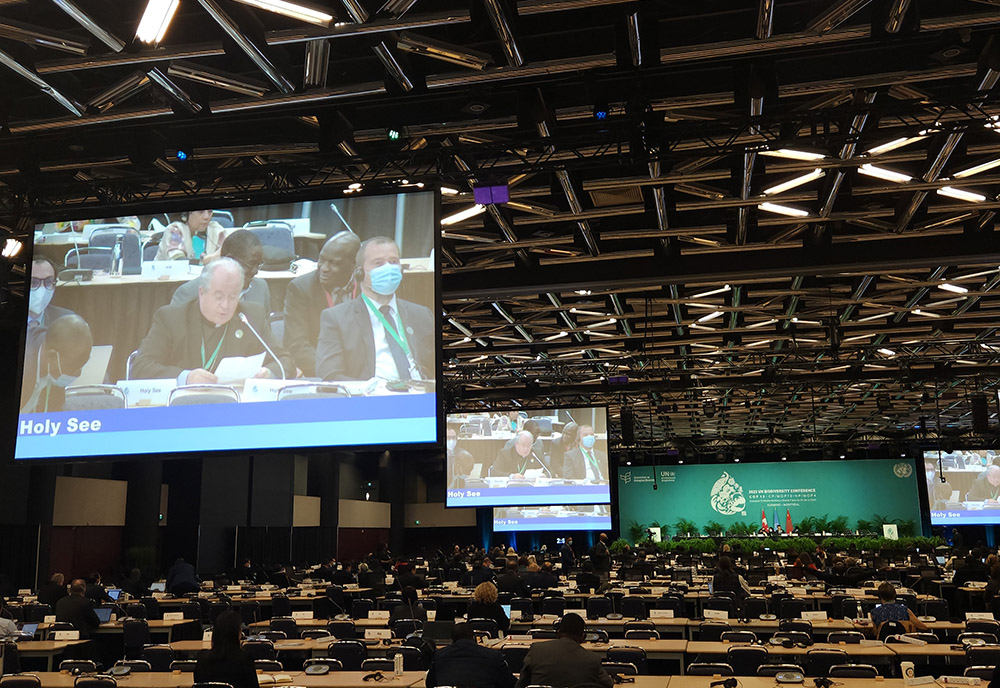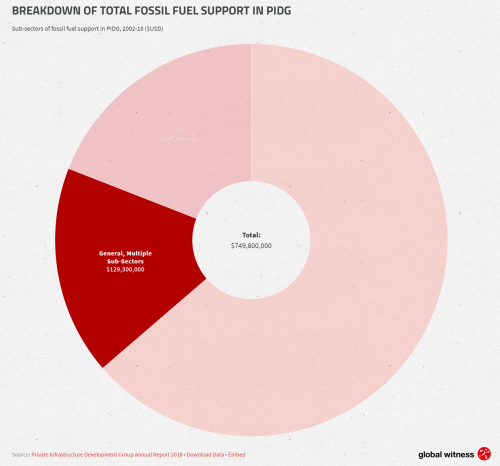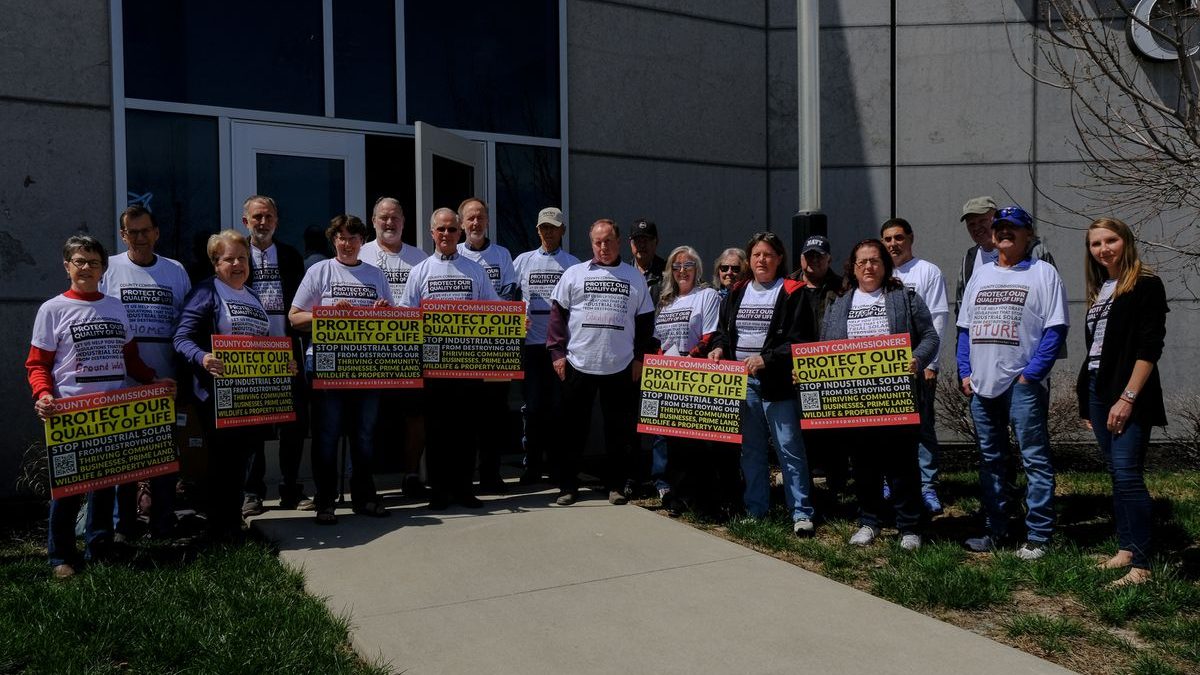Business is using COP15 to show it’s serious about saving nature, but environmentalists aren’t so sure – “If you come here and your objectives actually are against the objectives of the convention, then we have a problem”

By Marisa Coulton
17 December 2022
(Financial Post) – The UN biodiversity conference in Montreal might go down in history as the moment that business engaged in the fight to preserve nature, but the presence of a thousand corporate representatives is making some the environmentalists who have been attending these meetings for years uneasy.
Some 30,000 delegates to the COP, or “Convention of the Parties,” have been bustling around Montreal’s Palais des congrès since Dec. 6, attending sessions aimed at coming up with a new international framework to preserve global ecosystems over the next decade. More than 900 of those delegates are business representatives from 41 companies, according to the convention’s press office, many more than at the previous COPs, according to some reports.
Environmental advocates such as Marien have nothing to worry about, said Dan O’Brien, a partner at PricewaterhouseCoopers LLP’s Canadian unit, where he is head of sustainable business solutions. Business engagement shows that there is finally “significant recognition” of the need to take biodiversity seriously, he said.
Indeed, the characterization of business as the bad guy might be a critical error, given the pressing need for conservation financing. Governments currently provide 85 per cent of biodiversity funding, according to the Biodiversity Finance Initiative, a joint effort of the UN Development Programme and the European Commission to round up money for biodiversity initiatives, and Prime Minister Justin Trudeau’s government said on Dec. 16 that it would contribute $255 million to a fund that will help poorer countries fight climate change and restore nature.
However, the United Nations Environment Programme estimates the funding gap will be between US$598 billion and US$824 billion per year by 2030.
“We won’t get there without the participation of private investors,” said Stephanie Emond, vice-president of FinDev Canada, the federal overseas development agency.
Businesses have come to realize that nature loss is a risk to the longevity of their operations, said O’Brien. Half of the world’s economy depends on nature, according to a report co-authored by the World Economic Forum (WEF) and PwC.

‘Behind the times’
Still, if executives are serious about deploying their capital to make a difference, they might have to find ways to earn the trust of the non-profits. They have been on the ground in delicate ecosystems years before economic consensus and pressure from environment, social, and governance (ESG) investors converged to cause C-suits to take notice of nature.
“If you come here and your objectives actually are against the objectives of the convention, then we have a problem,” said Marien. For her, the presence of business representatives in the meeting rooms erodes the legitimacy of the deliberations. “In terms of getting to real outcomes that will really do something for the environment, it just completely hampers it,” she said. “The measures they propose, they are actually very low level.”
At this COP, companies are most interested in Target 15, which encourages businesses to assess and report on biodiversity impacts, and Target 19, which aims to raise financial resources to fund the global biodiversity conservation effort.
As official negotiations stretched into the wee hours at one point this week, representatives from dozens of developing countries staged a walkout. A delegate who preferred not to be named told CTV that rich countries are happy to talk about targets but grow quiet when it comes to stating how much they would be willing to pay to achieve the goal. The walkout is symptomatic of the “trust deficit” which pervades the negotiations.
Some of the non-profits think the international bureaucrats leading the effort have been co-opted. The CBD Secretariat, “is quite underfunded, and then some of the corporations come and say, ‘Oh, but you’re underfunded. We can help you,’” Marien said. This is just one of myriad ways corporations “infiltrate” the proceedings, she said.

‘Alphabet soup of standards’
In addition to financing biodiversity conservation efforts, companies also seem open to mandatory assessments and reports on their impacts on nature, as well the ways in which they depend on it for their business operations, per Target 15. The target also encourages business to reduce negative impacts while increasing positive ones and moving toward “full sustainability of extraction and production practices.”
Marien called it “greenwashing,” a term critics use to label companies that overly hype their commitment to environmental goals. O’Brien disagrees. Businesses want mandatory monitoring because they are confused by nebulous targets, an “alphabet soup of standards,” he said. Businesses want clear policies and rules because uncertainties create risk and increase costs. If they don’t have clarity, companies will flee “high-risk areas” and take their capital with them, he said.
Organizations such as the Taskforce on Nature-related Financial Disclosures (TNFD), which O’Brien chairs, are trying to provide information to investors about what companies are doing about climate change. The idea is to direct resources toward more “nature positive” models, he said.
O’Brien is a proponent of bringing business and biodiversity together using a common, qualitative standard. It would be similar to the way the carbon tax quantifies the negative impacts of climate change. That way, the progress of two separate actors in the private sector can be more easily compared.
“These are subjects that we must talk about (in corporate boardrooms),” said Frederick Morency vice-president of sustainability, strategic initiatives and innovation at Toronto-based Schneider Electric Canada Inc., who said he thinks it should be mandatory for all companies to make biodiversity disclosures. The initiatives must make concrete change, and can’t remain “on the nice corporate Powerpoint,” he said.
Yet advocates such as Marien still greet finance with suspicion. If private interests are to be involved in COP15, they should be involved “in a very specific capacity,” she said. “They should be limited.”
O’Brien countered that “you can’t have a conference like this in the absence of business,” adding that businesses will be “fundamental” in solving the issues at hand.
COP15 is scheduled to close on 19 December 2022. The UN’s negotiators might come up with a high-level compromise by then. But bridging the gaps that exist on the ground will take longer than that.
Business is using COP15 to show it’s serious about saving nature; environmentalists aren’t so sure


